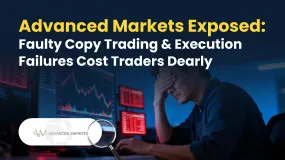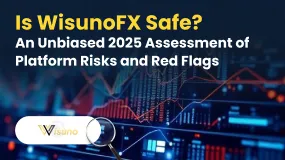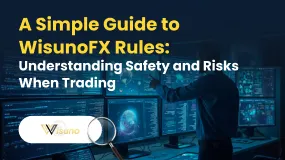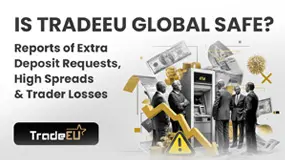Abstract:At first glance, Forex trading appears straightforward. Yet, beneath this seemingly simple surface, controversies and apprehensions about Forex scams persist, raising the question: what could go wrong with Forex trading?

In the pursuit of supplementing our income, many individuals turn to the enticing realm of Forex trading, a venture readily available on the internet. However, distinguishing between legitimate trading opportunities and potential Forex scams poses a considerable challenge.
To address this concern, engaging a third party can prove invaluable, offering assistance in identifying reliable brokers and aiding those who may have fallen victim to Forex scams. Before delving into the intricacies of these scams, it is essential to understand the nature of Forex itself—an abbreviation for “foreign exchange,” involving the trading of currency pairs. This could entail, for instance, betting on the British Pound's increase against the Euro.
At first glance, Forex trading appears straightforward, as currency dealings are part of everyone's experience, particularly for those who have travelled internationally. Yet, beneath this seemingly simple surface, controversies and apprehensions about Forex scams persist, raising the question: what could go wrong with Forex trading?
Unfortunately, trading scams often masquerade as legitimate opportunities, leading unsuspecting individuals to invest their money only to realize later that not only are profits elusive, but the recovery of their initial investment may also be in jeopardy.
Forex scams appear in various forms, each presenting its unique risks:

The initial step in selecting a broker involves ensuring regulatory compliance. Merely verifying a license is insufficient; it is crucial to confirm that the license originates from a reputable regulator. Counterfeit licenses add another layer of complexity, demanding scepticism towards brokers offering scant information.

Signal sellers promise practical tips and trading strategies for a substantial fee. Despite the high cost, the suggested currency pairs often yield unfavourable results. Traders, having paid for the service, eventually realize the deceptive nature of the tips, benefiting only the unscrupulous broker.

While robots incorporating Artificial Intelligence are increasingly prevalent, promises of easy profits, especially while asleep, serve as red flags. Scammers intend for traders to be oblivious, with these robots functioning as nothing more than an illusion—devoid of actual trading.

In this scenario, individuals posing as fake money managers entice investors with promises of exorbitant returns, such as 50% annually. The extravagant guarantee of high returns itself serves as a glaring indicator of potential scams, given that legitimate funds typically yield around 10% annually.
As the allure of Forex trading persists, understanding the nuances of these scams becomes imperative for potential investors, safeguarding them from falling prey to fraudulent schemes that jeopardize financial well-being.
As the financial landscape continues to evolve, platforms like WikiFX remain essential pillars of transparency and accountability in online trading. They serve as invaluable resources, equipping investors with the necessary tools to navigate the intricate and often treacherous terrain of financial markets.

WikiFX stands tall as a distinguished online forex broker regulatory query platform, committed to empowering traders with comprehensive and up-to-date information. At WikiFX, our unwavering dedication revolves around continually updating our extensive database to reflect the most current and pertinent insights into various brokers. One of our hallmark features is the WikiScore, a dynamic assessment that considers an array of critical factors, including authentic client reviews, licensing details, regulatory compliance, and more. This holistic evaluation ensures that traders have access to a transparent and reliable assessment of brokers, enabling them to make informed decisions and navigate the complex terrain of online trading with confidence. Download our free mobile application from App Store/Google Play now!















